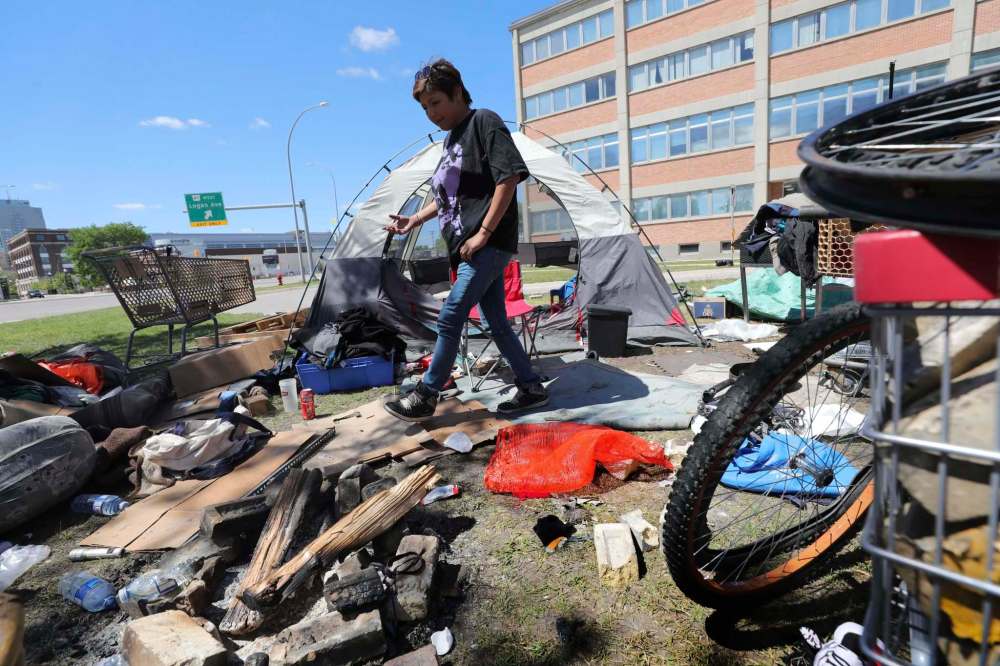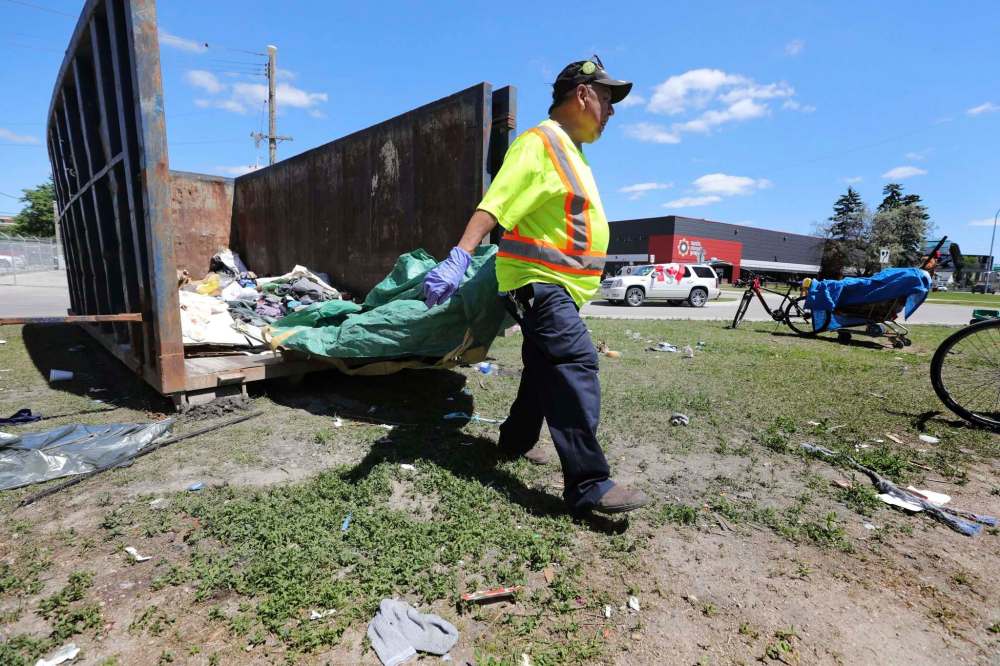Evicted camp residents pack up peaceably
Advertisement
Read this article for free:
or
Already have an account? Log in here »
To continue reading, please subscribe:
Monthly Digital Subscription
$0 for the first 4 weeks*
- Enjoy unlimited reading on winnipegfreepress.com
- Read the E-Edition, our digital replica newspaper
- Access News Break, our award-winning app
- Play interactive puzzles
*No charge for 4 weeks then price increases to the regular rate of $19.00 plus GST every four weeks. Offer available to new and qualified returning subscribers only. Cancel any time.
Monthly Digital Subscription
$4.75/week*
- Enjoy unlimited reading on winnipegfreepress.com
- Read the E-Edition, our digital replica newspaper
- Access News Break, our award-winning app
- Play interactive puzzles
*Billed as $19 plus GST every four weeks. Cancel any time.
To continue reading, please subscribe:
Add Free Press access to your Brandon Sun subscription for only an additional
$1 for the first 4 weeks*
*Your next subscription payment will increase by $1.00 and you will be charged $16.99 plus GST for four weeks. After four weeks, your payment will increase to $23.99 plus GST every four weeks.
Read unlimited articles for free today:
or
Already have an account? Log in here »
Hey there, time traveller!
This article was published 12/06/2020 (2009 days ago), so information in it may no longer be current.
A handful of tents still stood in a longstanding encampment near the Disraeli Freeway at noon Friday — the city’s original eviction deadline — as residents sorted their belongings and cleaned up.
Some piled possessions into tall cardboard boxes provided for storage by Main Street Project, a nearby community health centre. Others tossed garbage into an industrial-sized trash bin provided by the city. Still others loaded their possessions into shopping carts, sorting personal items from shareable community goods such as alcohol swabs and canned food.
“Everyone is planning on clearing out. There’s several different locations that people have picked to go to and there’s been no pressure from the city at all to vacate quickly, but everybody’s been doing their part and cleaning up as they go along,” said longtime camp resident Robert Russell.

“Everybody’s in really upbeat moods and things are going forward.”
Russell and the other residents of the camp—located near the Disraeli Freeway on Henry Avenue—were given orders to vacate from Winnipeg Fire and Paramedic Services on Wednesday, and spent their last days onsite packing up and figuring out safe places to go.
Some plan to find room in nearby shelters, while others simply moved their tents to a grassy area on the other side of the freeway. All in all, Russell said, most residents have chosen to honour the city’s orders and find somewhere else to go.
“If we were to fight them it would have turned into a situation where while we’re sleeping or during the day there would be confrontation,” Russell said. “It would have been more of a stressful situation—if we move forward or move on to our next destination, we can sleep peacefully.”
The city erected a fence around a nearby former encampment on Austin Street after residents cleared out as per city orders on Thursday. As for the Henry Avenue site, Main Street Project’s executive director, Rick Lees, said the city had no plans to rush anyone off the land and that his organization would work with residents to ensure everyone has a safe place to go.
“It’s the residents’ timeline and our job is to simply make sure they’re safe and they have access to all the supports they need to accomplish this,” Lees told media Friday. “I think it’s inappropriate for us to tell them exactly what hour of the day that should occur; it seems to me they’re making progress.”
No fences are expected to pop up on Henry Ave, Lees said, noting the city plans to remediate the land and is considering using the space to “reflect the awareness that people have created here about homelessness,” though the shape that reflection would take is yet undetermined.
Though spirits were high Friday, many residents still lamented leaving the camp—and the family they found with each other there.
“It’s sad to see it being taken away right now,” said Nathaniel Wereley, who has been living at the camp for almost a year. “We were trying to clean up before, but sadly we didn’t do that in time.”

Russell said he’s looking to each new day with optimism, hoping for more accountability from municipal and provincial governments as they seek to address the “bigger picture” of cycles of poverty.
“It’s not just EIA’s (employment and income assistance) fault, it’s not just the City of Winnipeg’s fault, it’s a combination,” he said.
“We have problems in some of the shelters, we have problems in EIA, so as a combination, if someone was to look it over and say ‘how can we make it better for the people that are using these services’…that would be awesome.”
julia-simone.rutgers@freepress.mb.ca
Twitter: @jsrutgers

Julia-Simone Rutgers is a climate reporter with a focus on environmental issues in Manitoba. Her position is part of a three-year partnership between the Winnipeg Free Press and The Narwhal, funded by the Winnipeg Foundation.
Our newsroom depends on a growing audience of readers to power our journalism. If you are not a paid reader, please consider becoming a subscriber.
Our newsroom depends on its audience of readers to power our journalism. Thank you for your support.


